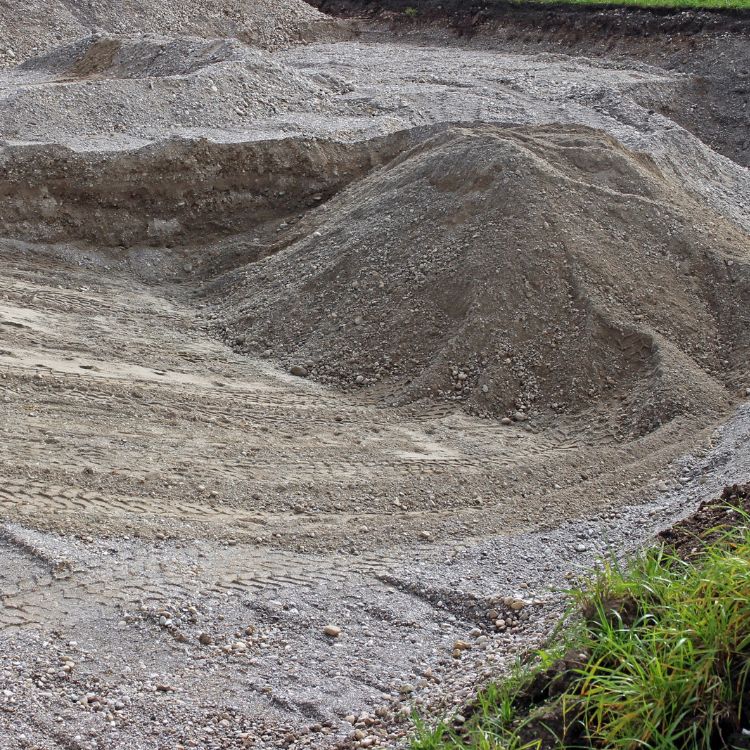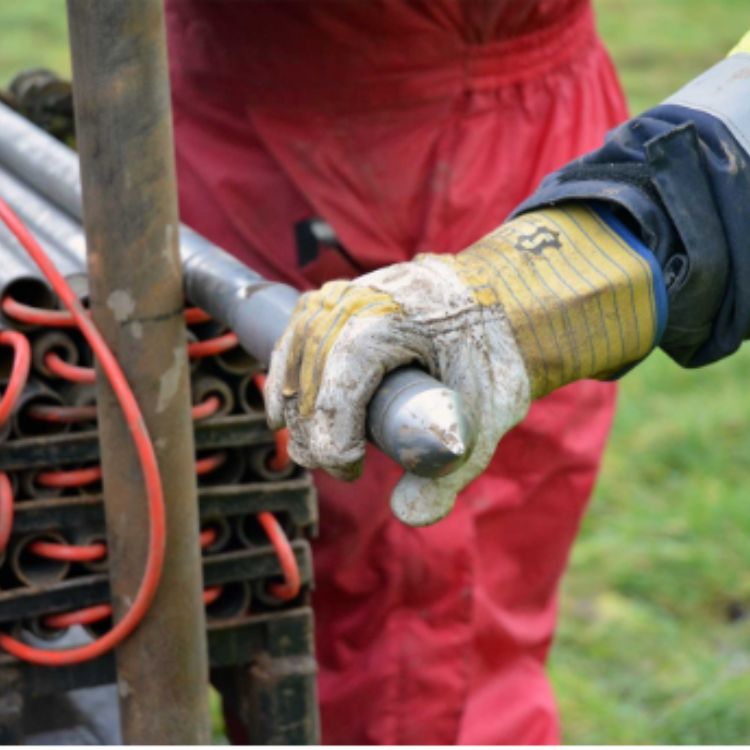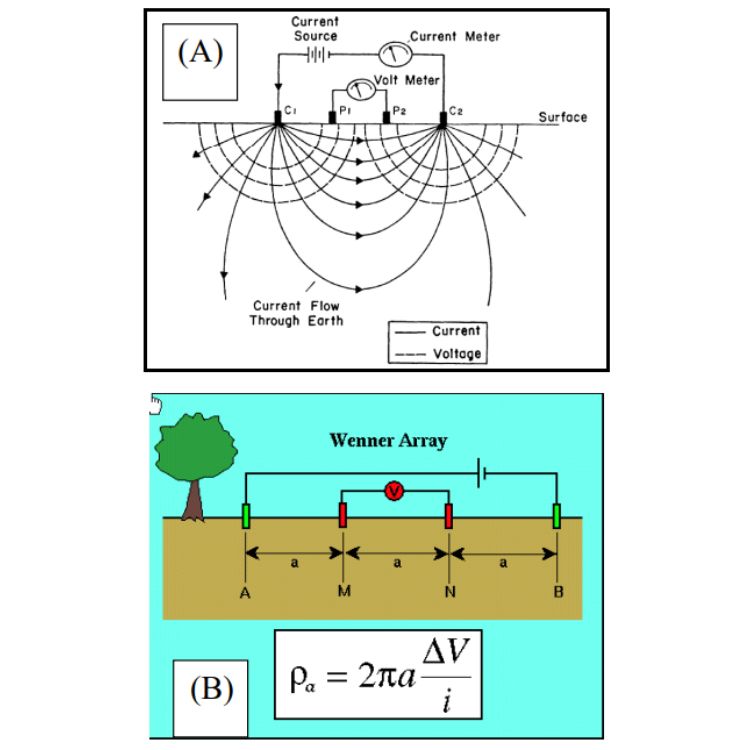Soil is the stage upon which every structure in Malaysia stands whether it’s a high-rise in Kuala Lumpur, a bridge in Penang, or a factory in Johor.
This article is your ultimate guide to the soil investigation test: what it is, why it matters and how Geotechnica executes it with precision. By the end, you’ll understand not only what a soil investigation test is but also which method suits your project best.
In Malaysia, there are still plenty of myths and misunderstandings. Many developers believe soil investigation is “optional,” or worse just a document to satisfy authorities. Others think a single borehole tells the whole subsurface story. These stigmas have led to costly failures, slope collapses and foundation cracks that could have been avoided with proper testing.
That’s why you need to stick around. This guide will cut through the noise and explain how soil investigation methods are applied in real Malaysian contexts slope protection, drainage design and industrial foundations.
“Without site investigation, ground is a hazard.” — Institution of Civil Engineers (ICE), UK (as used in Wardell Armstrong – Site Investigation page)
Fundamental of Soil Investigation
A soil investigation test is the systematic process of examining subsurface conditions through field and laboratory testing. The aim? To understand soil strength, groundwater conditions and geological risks. In Malaysia’s humid tropical climate where rainfall is heavy and soil profiles vary drastically, this process isn’t just a box to tick. It’s the foundation of geotechnical engineering itself.

Why Soil Investigation Is Important
Imagine building a highway in Pahang without knowing the soil bearing capacity. Or erecting a condominium in Bukit Antarabangsa without mapping weak clay layers. The results? Landslides, foundation settlement or structural collapse. Soil investigation provides engineers with the data to design safer, cost-effective structures while minimizing surprises during construction.
Is Soil Investigation Mandatory?
Yes, especially for large projects. In Malaysia, local councils and agencies like JKR (Jabatan Kerja Raya) often require soil investigation reports before approving designs.
This ensures compliance with engineering standards and protects public safety. While small-scale builders sometimes cut corners, skipping soil investigation is not only risky but can also lead to project rejection.
Benefits of Soil Tests
Safety
In Malaysia, landslides are not just rare events, they are recurring hazards. According to the Public Works Department (JKR), over 100 slope failures occur annually in Peninsular Malaysia, especially in Selangor, Penang and Cameron Highlands.
Soil investigation tests help detect weak layers, soft clays or hidden cavities before construction begins. This early detection allows engineers to design stabilisation measures, preventing disasters like the Bukit Antarabangsa landslide (2008), which claimed lives and damaged dozens of homes.
Cost Efficiency
When soil conditions are unknown, developers often “play safe” by overdesigning foundations, piling deeper or using excessive reinforcement. This inflates costs unnecessarily. Soil investigation tests provide accurate data on bearing capacity and soil profiles, meaning engineers can design just enough support without overspending.
For example, a well-executed Standard Penetration Test (SPT) can save hundreds of thousands of ringgit on foundation costs in large-scale projects.
Environmental Protection
Groundwater contamination is a growing concern in Malaysia, especially near landfills and industrial estates. Soil tests, particularly electrical resistivity and borehole logging, reveal groundwater levels and flow patterns.
By mapping aquifers before construction, engineers can prevent contamination from septic systems or leachate migration, protecting both ecosystems and community water supplies. Research by Universiti Malaya has shown that improper site planning without soil and groundwater mapping has led to localized aquifer pollution in Selangor and Johor.
Regulatory Compliance
Soil investigation isn’t just a technical best practice, it’s a legal and regulatory requirement. Major authorities like JKR, CIDB and local councils require soil investigation reports as part of the approval process for roads, bridges and high-rise projects.
International standards such as BS 5930 (British Code of Practice for Ground Investigation) and the Eurocode 7 are also benchmarks followed in Malaysia. Compliance ensures that projects are not only approved smoothly but also designed to withstand long-term risks, from heavy rainfall to seismic activity.
Soil Investigation by Geotechnica
At Geotechnica, we’ve executed soil investigation tests across Malaysia for over a decade, supporting infrastructure that Malaysians rely on every day. Our track record covers challenging terrains, urban sites and critical infrastructure projects.
Slope Protection Projects
In the Klang Valley, Geotechnica was engaged to investigate soil conditions for hillside housing developments in Bukit Antarabangsa and Ampang. Our combination of borehole drilling and electrical resistivity tests detected weak clay seams and groundwater seepage zones, data that enabled engineers to design effective retaining structures and slope drainage, reducing landslide risks.
Road & Drainage Design
For the East Coast Expressway (LPT2) extension, Geotechnica performed soil tests to ensure that embankments could withstand heavy rainfall and soft ground conditions common in Terengganu.
Similarly, in rural Pahang and Kelantan, our soil investigation supported road and drainage projects by identifying compressible soils, allowing engineers to design suitable subgrade treatments that minimize long-term settlement.
Industrial Foundation
In Johor’s Pasir Gudang industrial hub, Geotechnica conducted Standard Penetration Tests (SPT) and Cone Penetration Tests (CPT) for a heavy machinery factory. The results revealed soft clay deposits at depth, requiring pile foundations instead of shallow footings.
In Penang Science Park, our soil testing provided vital load-bearing data for electronic manufacturing plants, ensuring production floors were stable and vibration-free.
Types of Soil Investigation by Geotechnica
Standard Penetration Test (SPT)
The backbone of soil investigation in Malaysia, SPT is carried out inside boreholes to measure soil resistance to penetration. At Geotechnica, we’ve used SPT for highways, bridges and industrial plants to determine soil bearing capacity and foundation depth with confidence.
Field Vane Shear Test (FVST)
Malaysia’s peatlands and soft clay deposits, especially in Johor and Sarawak that require FVST to measure undrained shear strength in situ. Geotechnica deploys FVST to provide reliable data for slope stability assessments and ground improvement design in soft terrain.
Cone Penetration Test (CPT)

When fast and continuous soil profiling is needed, we use CPT. This test gives engineers a real-time subsurface profile, perfect for urban projects in Kuala Lumpur and Penang where soil variability can be significant. CPT has been one of Geotechnica’s most requested services for foundation planning.
Laboratory Testing
Samples retrieved from boreholes undergo Atterberg limits, moisture content, triaxial compression and grain size analysis in our partnered labs. Geotechnica ensures lab data meets international standards, supplying engineers with precise parameters for design and modeling.
Electrical Resistivity Test (ERT)
Beyond boreholes, we use non-invasive Electrical Resistivity Tests to map subsurface anomalies, groundwater tables and cavities. ERT has been applied by Geotechnica in slope monitoring projects and landfill studies, providing a wider picture that traditional drilling alone can’t capture.
What is the Most Accurate Soil Test?
1. Standard Penetration Test (SPT)
The Standard Penetration Test (SPT) is considered the benchmark in Malaysia for foundation design because it directly measures soil resistance at various depths through boreholes. Its results, commonly expressed as the N-value, are widely used in Eurocode 7 and JKR guidelines to estimate bearing capacity and settlement.
The reliability of SPT lies in its long history: decades of Malaysian construction projects, from highways to high-rises, have been designed based on SPT correlations, making it the gold standard for geotechnical practice.
2. Electrical Resistivity Test (ERT)

While ERT does not measure soil strength directly, it provides high-resolution imaging of subsurface conditions that boreholes often miss.
In Malaysia, ERT has been successfully applied in slope stability studies, landfill monitoring and groundwater exploration, mapping anomalies such as cavities, water tables and fault lines over large areas.
When combined with borehole data like SPT, ERT enhances accuracy by reducing uncertainties making it a powerful complementary tool rather than a replacement.
“Soil investigation tests are not just a pre-construction formality, they are the backbone of reliable design, ensuring safety, stability and sustainability.”
— Encardio-Rite Geotechnical Insights
Geotechnica : Soil Investigation Provider Malaysia
At the end of the day, every structure in Malaysia stands on one truth: the ground beneath must be understood before it can be built upon. That’s where a soil investigation test makes the difference between safe, lasting engineering and costly failure.
At Geotechnica, we’ve built our reputation as one of Malaysia’s trusted soil investigation providers by combining field experience, modern testing methods and strict adherence to international standards. From SPT and CPT to advanced ERT imaging, we don’t just deliver numbers, we deliver confidence in design.
Geotechnica provides accurate, affordable and timely results that help you make the right decisions. Our expertise has already supported roads, drainage, industrial foundations and hillside protections across Malaysia.
Contact Geotechnica today to discuss your project and let us help you build on solid ground.



